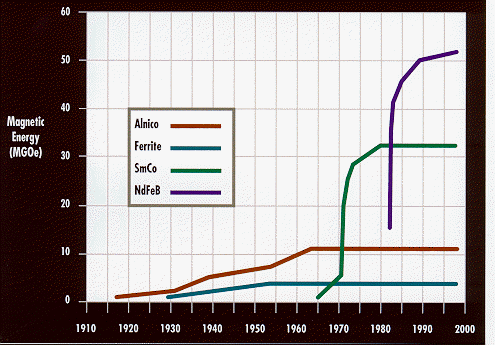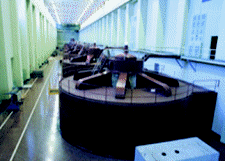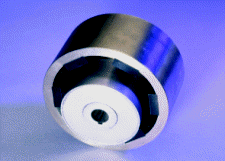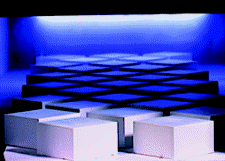Introduction to Magnetics

The following information was reprinted with permission from Dexter Magnetic Technologies. For more information, visit their website at: www.dextermag.com
Background and History
Permanent magnets are a vital part of modern life. They are found or used to produce almost every modern convenience today. The first permanent magnets were produced from naturally occurring rocks called lodestones. These stones were first studied over 2500 years ago by the Chinese and subsequently by the Greeks, who obtained the stone from the province of Magnesia, from which the material got its name. Since then, the properties of magnetic materials have been profoundly improved and today's permanent magnet materials are many hundreds of times stronger than the magnets of antiquity.
The term permanent magnet comes from the ability of the magnet to hold an induced magnetic charge after it is removed from the magnetizing device. Such devices may be other strongly magnetized permanent magnets, electromagnets or coils of wire that are briefly charged with electricity. Their ability to hold a magnetic charge makes them useful for holding objects in place, converting electricity to motive power and vice versa (motors and generators), or affecting other objects brought near them.
Advances in Magnetic Materials

Applications
While there are an infinite number of applications for permanent magnets, they can be classified into four general groups:
- Conversion of Electrical Energy to Physical Motion: Examples include motors, actuators, speakers, meters, and instruments. In these applications, electrical input causes a relative movement of the magnet which results in the desired physical output.

Avionics instruments
- Conversion of Physical Motion to Electrical Energy: Generators, microphones and sensor ICs are the most common applications for converting physical motion into electrical energy. Relative movement of the magnet produces an electrical output.

Electric Generator
- Production of Mechanical Energy: In these applications, magnets are used to hold, lift, create tension, or apply a repulsive force. Examples include latches, bases and clamps, torque couplings, locking and unlocking devices, and separators.

Torque Coupling designed by Dexter
- Applied Fields: In these applications, the magnetic field is used in a special way. Often, it is used to control, shape or direct an object or substance. Applications include spectrometers, annealing and plating dipoles, beam control and focusing, positioning and plasma control devices.

Plasma glow generated using a Dexter sputtering magnetron.